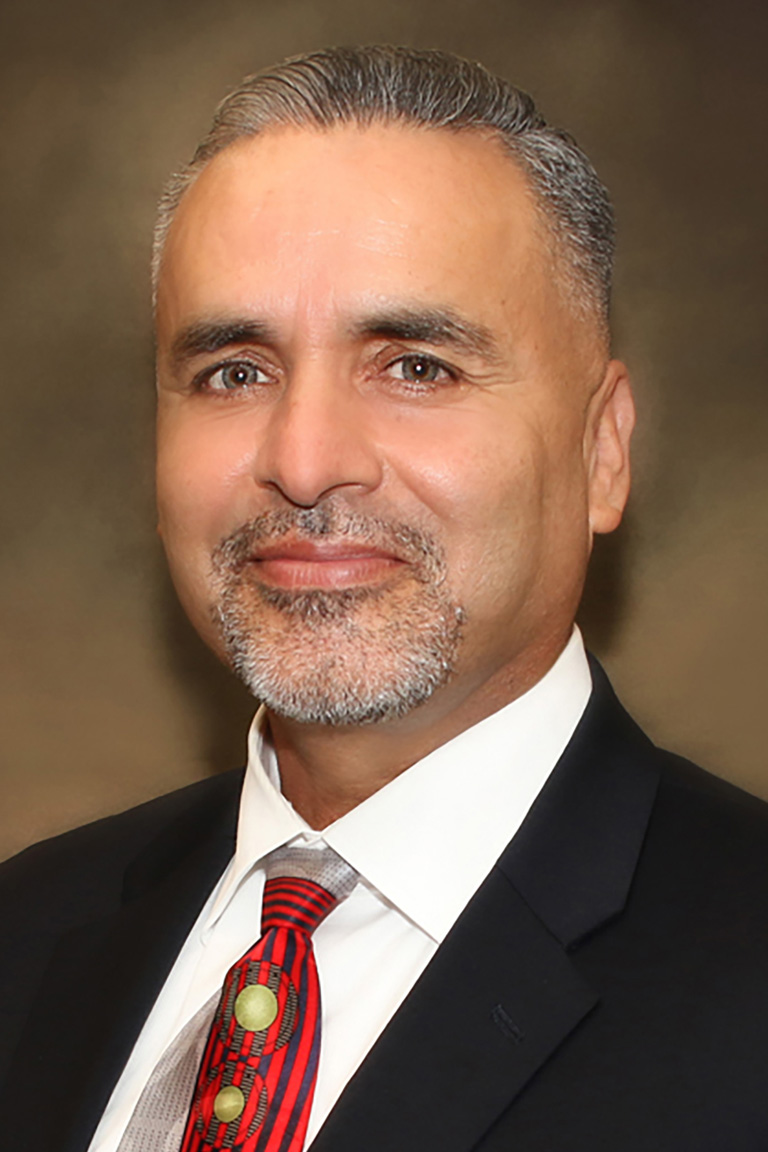As the first Mexican American and youngest Latino school chief ever hired by the Rialto Unified School District (Rialto USD), Cuauhtémoc Avila understood that building trust in the community and among teachers, administrators, and support staff in his district would take some time, and he didn’t waste a minute of it.
Avila, who graduated with his master’s degree in Educational Administration in 2008 from California State University, Dominguez Hills (CSUDH), was unanimously appointed superintendent of the Rialto USD in 2015.
 “The biggest challenge was re-establishing trust within the community, and with district staff, given what they had gone through the previous three years,” said Avila, who has been a leader in public education for more than 22 years. “We began breaking up silos that had established over the years, which had really made it difficult for people to work together, so reaching out to the core education community was also a critical part of our efforts.”
“The biggest challenge was re-establishing trust within the community, and with district staff, given what they had gone through the previous three years,” said Avila, who has been a leader in public education for more than 22 years. “We began breaking up silos that had established over the years, which had really made it difficult for people to work together, so reaching out to the core education community was also a critical part of our efforts.”
Another major opportunity for improvement for Avila was the “apparent disconnect” between Central Office and the teachers/administrators working within the district’s 29 school sites.
“Relationships and building trust is essential, and it will take some time,” said Avila, who as superintendent is responsible for 26, 500 students and more than 4,000 employees. “But we’re moving toward a positive direction, with the majority of our staff members on board, the community behind us, and our school board supporting the growth and process that will benefit our students’ academic achievements.”
Every Step of the Ladder
Avila has received public praises for his success in putting the Rialto USD on its new all-inclusive, future-focused trajectory, in such a short period of time. After just one year on the job, he was named the finalist for the San Bernardino County Medal of Honor nominee. Much of his success can be attributed to his unique educational leadership experience, ability to navigate internal politics, and a strong track record of creating connections and building teams.
Avila began his career as an educator in 1994 as a middle school teacher in the Compton Unified School District. During his 13 years in the district, he served as a successful elementary, middle, and high school principal. In 2007, Avila joined the Glendale Unified School District as principal of alternative education, and subsequently, as director of educational services.
From 2012, until joining Rialto USD, Avila served as the Assistant Superintendent of Educational Programs for the Los Angeles County Office of Education, where he worked in collaboration with probation and other agencies primarily related to incarcerated youth. He regularly interfaced with the Los Angeles County Board of Supervisors and their staff, the Probation Department, groups that advocated for incarcerated youth, and various school districts–the Los Angeles Unified School District in particular, which had “prioritized” transitioning students from incarcerated programs into the district.
“That County position took a lot of conversations and listening. It gave me a much broader picture. We traveled nationally to observe a number of model incarcerated youth programs, and brought a number of ideas to LA County,” he said. “Most of all, it was the finessing through the politics and competing interests, and working in dedicated teams that proved to be a great learning experience for me.”
Moving Forward
The Rialto Unified School District is moving forward with new initiatives, such as the district’s new STEAM (Science, Technology, Engineering, Art, and Mathematics) program, and its investment of “millions of dollars” in Pre-K-3 literacy programs to give youth a head start, “even before they enter school.”
The district has also embarked on a year-long process of developing a Strategic Plan. Scheduled to launch in July 2017, the plan also mandates that all of Rialto’s 29 schools develop their own site-level strategic plan, which will connect with the district-wide plan and enable the entire district to operate in the same direction.
“That, in itself, has blown up a lot of the walls that have existed because we have included stakeholders from the community in the plan,” said Avila. “Secular and faith-based groups, non-profits, city hall, staff, business leaders, elected officials, college administrators, students, nearly everyone is on board, and matters, and they have participated in developing the Strategic Plan. It has opened up a lot of opportunities for new, refreshing ideas.”
That team-think style continues to pay dividends for Avila, and Rialto, as it builds on its positive momentum, and the trust within the community, and itself.
“A monumental change that had to be completed was to eliminate our vertical organizational chart–we flattened it. That decision is something that has really made progress in respect to trust of Central Office,” said Avila. “We have also given a lot more discretion to the administrations at our sites to lead their own schools, with the understanding that with the flexibility comes the responsibility. They are just loving that, and so are we.”